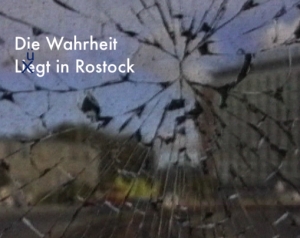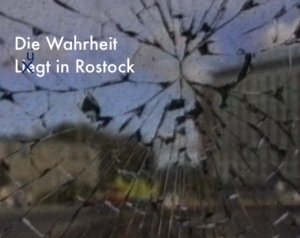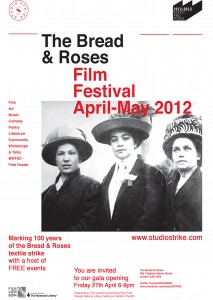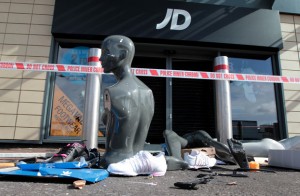Walking through Covent Garden today, I found myself nearly knocked over by a speeding police car down a small street with no sirens or lights on. I thought it strange they were in such a hurry but had no warning system. As I reached the Tesco’s in Covent Garden, I saw 6 heavily armed police officers surrounding a man. I walked past and saw a small, middle aged, Indian man. He was holding a white charity bucket in one hand. Two officers were standing behind him telling him not to move and to spread his legs; they were going to search him. Another 2 officers were taking all his belongings out of his small beige rucksack and reading every piece of paper and asking him about their contents. At the same time one other officer was asking him who he was, what his name was and why he was behaving suspiciously. Someone else was going through his wallet. It seems in London these days to be Asian, and carrying a rucksack makes you instantly suspicious.
The man spoke broken English and he did not seem to quite understand what was going on. He kept saying he was collecting for charity and you could see from his body language and the way he was looking at them he was stunned and very scared. These men were tall, heavily built, all Caucasian, talking loudly, moving him around physically, going through his things and saying he had been reported for suspicious behaviour. Someone they said had seen him collecting for charity outside Covent Garden station and had called the police saying they had seen a terrorist.
You could feel the adrenalin rising in these men as they went through his bag and flashes of the fear mongering and its terrible outcome with Jean Charles went through my mind. This man had been stopped and searched purely because of the colour of his skin. If a Caucasian man or woman had been standing outside Covent Garden station with a charity bucket and a rucksack would someone have rung the police saying there is a possible terror attack? Do people go around calling the police every time they see a Big Issue seller? Or one of those chuggers? They look more threatening half the time than this small framed middle aged man. But then Jean Charles had no padded jacket on, did not jump over any barriers. He was not even carrying the dreaded rucksack. He was simply the wrong colour. The colour of a terrorist.
They spotted me watching and I felt myself get worked up. I wanted to cause a scene. To let people know what was going on here. I said Racists out loud. They heard me and none of the armed men could look me in the eye. An Asian bobby who had turned up, couldn’t stop eyeballing me. I stared right back. Police tactics work in so many ways to provoke, intimidate.
After reading all his personal papers, and telling him they thought he could be a terrorist; they had to admit they found nothing. To stop anyone seeing what they were doing they formed a ring around him. They could see me watching, so they blocked my view. The biggest of them was laughing and asking where he should go next. To the next brown man I suggested. He ignored me. People walked by but because they had ringed him in no one could see what was happening. It was clear now he was not carrying a bomb- so now they formed a tighter ring round him- to hide what? The fact they had been searching a man based on the colour of his skin perhaps?
After half an hour the armed police left. 2 plain clothes were left taking his details and the Asian bobby kept eye balling me. I had nothing to hide. I eyeballed him back. Eventually they left and the man was left crouching in the street putting his things away. I went up to him and put my hand on his shoulder. Asked him was he okay. I did not want to scare him. I told him I had seen what had happened . He seemed wary and said yes he was fine. I said I would have been scared, I was scared because of how many men there were. And his eyes started to fill with tears and he said yes he was scared but he was okay. He asked me my name and where I was from. He said he did not understand why he had been stopped. I told him it was because he was carrying a rucksack. He did not understand what that word meant. And because he was brown. He understood that with a resigned acceptance . Just as I was asking him if he needed anything the Asian bobby turned up again. They had been sat in the police car watching me.
He looked down at where I was crouched with the man and asked me if I was okay. I said yes thank you fine. He would not move. He looked at my brown paper bag from the Tea Shop in Neal Street. There was a terracotta tea pot in there and some Jasmine tea. I told him I did not have a bomb and would he like to arrest me because I was brown too. He said nothing. I said I am having a private conversation please would you go away. He said I saw you say “racists” and I wanted to explain we are not and I am Asian. Good for you I said. You stopped this man because of the colour of his skin. He started to say no and started to get quite pushy. Provocative I would call it. I was not going to be riled. I told him I was exercising my human right to have a private conversation, he was disturbing this, he had no legal right to stop me speaking to someone and to go away. He would not go away. He said he wanted to explain to me why they had stopped his man. Perhaps he thought me press. Perhaps he thought this would go further. I turned my back on the bobby and finished my conversation with the man.
I wandered dazed and upset into Tesco’s to get away from the meddling Bobby, who would not even let me extend some generosity to the man they had just harassed. Aimlessly moving through chiller cabinets and food aisles, I went to leave and there he was, resilient, by the entrance with his white charity bucket in Tesco’s. He was not making any noise. Just silently standing there with his bucket collecting for charity. We spoke some more. He seemed stunned but he thanked me for being kind to him. I asked him for an interview and he said sure. I hope to share his story with you in his own words here of the experience. He told me he was from Bangladesh and was collecting for the poor and sick back home.
This incident is a sharp reminder of where we are with the terror laws that were rushed through. Take this incident and change a few variables. The man has a beard and Muslim dress. The man is younger, resents being stopped, resists the Police. The man has no papers to prove who he is. The man doesn’t speak English. The man has a Koran on him and literature that is anti war. The man has people who want to teach him a lesson, has annoyed his neighbour, who report on him-and you are one step closer to cases like Baber Ahmad. To extraordinary rendition, to Shaker Aamer still languishing in GTMO.
Wrong place, wrong time, and most definitely the wrong colour.
 Screening of the documentaries The Truth Lies in Rostock and Despite the Sun are schedule for the ASA14 Decennial: Anthropology and Enlightenment conference running on Saturday 21 June and Sunday 22 June in the city of Edinburgh.
Screening of the documentaries The Truth Lies in Rostock and Despite the Sun are schedule for the ASA14 Decennial: Anthropology and Enlightenment conference running on Saturday 21 June and Sunday 22 June in the city of Edinburgh.




